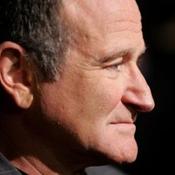 “Can I recover from depression without antidepressants?”
“Can I recover from depression without antidepressants?”
This is a question that many people ask me. They search the web, talk to their doctors, and seek alternative treatments, hoping that they can recover “on their own.” The answer to this question is both simple and very complicated. It often depends on the severity and persistence of depressive symptoms. Few people, in my experience, recover spontaneously and fully from depression entirely on their own. Reaching out for help is an important part of the recovery process. But getting help can take many forms, and what works for one person may not be the answer for another.
Studies show that psychotherapy can be as effective as medication in improving depressive symptoms, and the benefits tend to persist after treatment ends. Therapy addresses the root causes of depression, such as unresolved grief, anxiety, early childhood trauma, negative thinking, poor self-image, loss of meaning, and relationship difficulties. Therapy can also help to improve coping skills and resilience. But for severe or persistent depression, both therapy and medication may be needed for a complete recovery. This article will talk about what individuals should consider when deciding whether to take antidepressants for treatment of depression or whether another approach might work as well.
1. Severe, debilitating depression warrants a consultation with a doctor.
When a person comes into my office complaining that he or she is depressed, it is important to assess the severity of the depression. Severe depression with suicidal thoughts needs to be taken much more seriously and warrants a consultation with a medical professional regarding possible medication. Severe depression is a life-threatening condition and should be treated as such.
In addition, depression with severe insomnia may require medication. Without adequate sleep, it is extremely difficult to recover from depression. There are strategies that can greatly improve sleep in some cases, but if sleep does not improve quickly, medication may be required to prevent a worsening of depressive symptoms.
2. There are effective non-drug treatment options for mild to moderate depression.
Many people with mild to moderate depression, where sleep is adequate, can recover from depression with talk therapy and adjunctive strategies such as exercise, improved nutrition, mindfulness techniques, sunlight or light therapy, support from friends, family or a support group, and lifestyle changes. All individuals with depression should rule out a medical issue which may contribute to their depressed mood. Many medical problems, including vitamin deficiencies and hormone imbalances, can contribute to depression. Getting a thorough physical exam to rule out a medical cause is important.
If there is no clear medical cause, psychotherapy which focuses on improving self-care, reengaging in pleasurable and meaningful activities, and managing negative thoughts can be helpful in many cases. Working on issues that are impacting relationships with friends, loved ones, and family can also greatly relieve depression in some individuals. And for some, exploring and resolving unresolved grief or early childhood trauma may be important. Other approaches that can contribute to recovery include bodywork, acupuncture or other alternative medical approaches, meditation, yoga, or spiritual exploration.
3. Taking medication for depression, when needed, should not be viewed as a failure.
However, it is important to recognize that depression is an issue as serious as diabetes, epilepsy, or even cancer. Because it involves mood, thoughts, and behavior, it can often be treated through those channels. But there are also genetic and environmental factors that make some individuals susceptible to depression and which may result in a more persistent condition that is more difficult to treat.
Just as other conditions sometimes require medication for their treatment, depression may also require medication to fully resolve. And it is important to recover fully rather than settle for persistent mild depression. Persistent depression can become chronic and more severe over time as the brain becomes accustomed to the depressed state. Therapy and medication combined have the highest success rate in terms of resolving depression, and when therapy alone is not sufficient, it may help to consult with a doctor or psychiatrist to discuss medication options.
It is important to remember that, when it comes to treating depression, there is no prize for recovering “better” than another person. Recovering without therapy, without medication—literally “on your own”—does not earn you any awards. The prize is being emotionally healthy. It’s important to recognize the impact that our society’s attitudes toward mental health conditions, psychotherapy, and psychotropic medications may have on your decision-making. How you recover is a personal choice, based on your own needs in consultation with trusted professionals. Your choice should be made from a place of compassion and self-love.
For help with depression, find a therapist in your area.
References:
- De Jonghe, F., Kool, S., Aalst, G., et al (2001). Combining psychotherapy and antidepressants in the treatment of depression. Journal of Affective Disorders, 64, 217-229.
- De Maat S, Dekker J, Schoevers R, De Jonghe F. Relative efficacy of psychotherapy and pharmacotherapy in the treatment of depression: a meta-analysis. Psychother Res. 2006; 16(5): 562–572.
- Spielmans, G. (2011, October 1). Antidepressants Versus Psychotherapy for Depression. Retrieved October 18, 2014, from http://pro.psychcentral.com/antidepressants-versus-psychotherapy-for-depression/004942.html

The preceding article was solely written by the author named above. Any views and opinions expressed are not necessarily shared by GoodTherapy.org. Questions or concerns about the preceding article can be directed to the author or posted as a comment below.

 Our Favorite Depression Blogs from Around the Web
Our Favorite Depression Blogs from Around the Web Brilliance Darkened: Have We Learned from Robin Williams?
Brilliance Darkened: Have We Learned from Robin Williams? How to Help Someone with Depression
How to Help Someone with Depression

Please fill out all required fields to submit your message.
Invalid Email Address.
Please confirm that you are human.
Leave a Comment
By commenting you acknowledge acceptance of GoodTherapy.org's Terms and Conditions of Use.